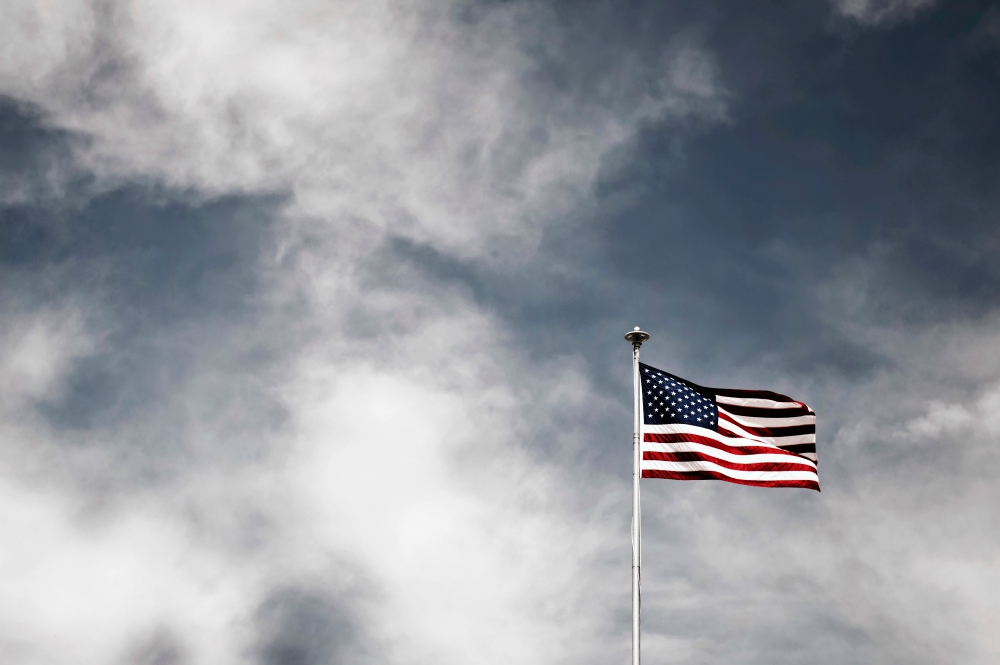
(Unsplash/Tim Mossholder)
On July 3, 1943, The New Yorker printed, in its Notes and Comments section, the following short submission from E.B. White:
We received a letter from the Writers' War Board the other day asking for a statement on "The Meaning of Democracy." It presumably is our duty to comply with such a request, and it is certainly our pleasure.
Surely the Board knows what democracy is. It is the line that forms on the right. It is the don't in don't shove. It is the hole in the stuffed shirt through which the sawdust slowly trickles; it is the dent in the high hat. Democracy is the recurrent suspicion that more than half of the people are right more than half of the time. It is the feeling of privacy in the voting booths, the feeling of communion in the libraries, the feeling of vitality everywhere. Democracy is a letter to the editor. Democracy is the score at the beginning of the ninth. It is an idea which hasn't been disproved yet, a song the words of which have not gone bad. It's the mustard on the hot dog and the cream in the rationed coffee. Democracy is a request from a War Board, in the middle of a morning in the middle of a war, wanting to know what democracy is.
When shown the comment, Franklin Delano Roosevelt exclaimed, "I love it! Them's my sentiments exactly."
They are my sentiments, too, although it is not 1943 and the jaunty optimism of White's comment is more difficult to achieve in 2020. True, we are not in the middle of a war as the country was in 1943, but by the summer of 1943, the tide had turned. It had been a year since the victory at Midway, after which the U.S. never lost another battle in the Pacific.
On the other side of the world, the hinge of fate had also swung: In the scorching sands of El Alamein and the frozen streets of Stalingrad, the Allies had their first taste of victory and would never taste defeat again. On the home front, the Depression had definitively ended and anyone who wanted work could find it. White and the nation had reasons to be optimistic about the future of democracy, which was overcoming such mortal threats.
Why, then, is it hard today to display that upbeat patriotism White so effortlessly captured? For starters, our constitutionally elected president likely has never felt communion anywhere, least of all in a library. In 1943, the enemies of democracy were abroad, but Donald Trump stands in a long line of domestic enemies of democracy from Aaron Burr to Jefferson Davis to Joseph McCarthy. Fighting domestic threats is always more complicated.

A World War II-era poster from the U.S. government (Wikimedia Commons/National Archives)
The problems are deeper than Trump. Our democracy is sclerotic in part because so much of the demos is spoiled by its own materialism. There are notes of sacrifice in White's text that sound almost quaint to modern ears. The "duty" is to a "Writers' War Board" and the cream is added to "rationed coffee."
There have been four hot and one cold war in my lifetime, and I have never been asked to ration anything. When America goes to war, it is our all-volunteer army that goes, and it is the soldiers and their families who bear the sacrifice. After 9/11, the rest of us were told to go shopping to help rebuild the economy.
Our modern recessions are painful for those in the bottom socioeconomic quadrants, but the upper-middle class that shapes culture is largely untouched: 401(k)s recover pretty quickly.
I wonder sometimes if the Greatest Generation would have been so great had it not been for the deprivations they endured. Today, people revolt when asked to wear an uncomfortable mask so that others will not be forced to don a much more uncomfortable ventilator. No one calls my generation great, nor should they.
We also know things that White did not know. We know that Franklin cheated on Eleanor and that parts of the New Deal discriminated against Black Americans because Roosevelt needed the votes of conservative white senators to pass his legislation. We know that our planes firebombed Dresden and dropped two atomic weapons on civilian populations.
Our patriotism is a little less fulsome than it was in White's day in part because we know it must be more honest than it was in 1943. Americans must learn to pray for America with our eyes open.
Advertisement
Make no mistake, however: America is still worth praying for and fighting for. I had a long conversation with a liberal operative the other night who told me that Democratic Party candidates this year are debating whether to campaign on a theme of restoring the country or a theme of change. Apparently, polls indicate more Americans want change.
It is a false choice. For a liberal, the way to "restore" America to greatness is to rekindle the idea that our society and our culture are amenable to positive change. The restoration America needs is to the social temper of the pre-Reagan — and really the pre-Vietnam — era, when we had confidence that government could improve our society, no matter how long it takes or how hard the effort.
We need to reclaim what White and his generation knew, that liberty is threatened by tyranny and by libertarianism, that solidarity and shared sacrifice create greatness.
And then, next July 4, we shall all have reason to slap some mustard on our hot dogs.
[Michael Sean Winters covers the nexus of religion and politics for NCR.]




